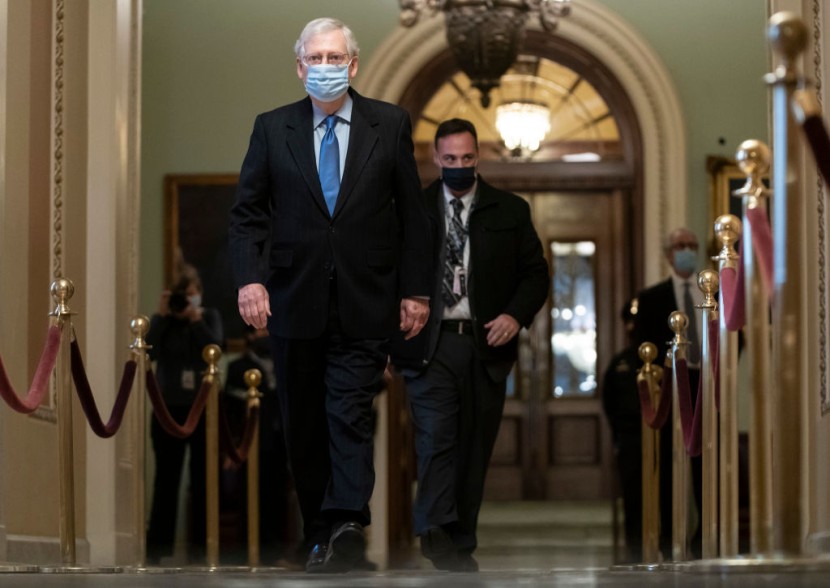
The Republican-led Senate voted to overrule incumbent President Donald Trump's veto of the National Defense Authorization Act (NDAA) for this year.
Trump's Defense Bill Overruled
The Upper House passed the bill on Friday without President Trump's signature with an 80-13 vote, making it the first time his veto has been overridden.
The Congress also rebutted Trump amid a rare New Year's Day session.
The GOP-dominated (Grand Old Party) Senate voted well above the two-thirds support necessary, underscoring the depth of dispute between Pennsylvania Avenue's two sides.
The votes ensured that the measure becomes law, notwithstanding Trump's rejection of the $740-billion U.S. bill.
Trump was agitated on Twitter, indicating the Senate passed an opportunity to eradicate protections for social media platforms that he said give big tech companies unlimited power.
A two-thirds majority of the senators override the veto. Trump vetoed the NDAA on December 23, reported United News of India.
The vote in the Senate on the widely popular defense bill followed a previous 322-87 override vote in the House of Representatives.
The move by the U.S. Congress to override President Trump's veto of the NDAA greenlights spending levels and establishes a policy for the Pentagon.
Eight earlier vetoes were sustained.
According to Senate Majority Leader Mitch McConnell (R-Ky.), "It's a serious responsibility. But it's also a tremendous opportunity: to direct our national security priorities to reflect the resolve of the American people and the evolving threats to their safety, at home and abroad," reported Ani.
The vote concludes a chaotic session for Congress that commenced with the longest government shutdown in modern history and involved an impeachment trial.
The Friday session, which appeared as the last session before a new Congress to be inducted on Sunday, also seemed to end for now a campaign by Democrats to increase COVID-19 relief checks from $600 to $2,000 sought by the president.
The president denounced lawmakers for denying his bid to increase COVID-19 relief payments to $2,000, "Not fair, or smart!'' reported NBC DFW.
Senate Republicans effectively killed the president's appeal for an increase in stimulus checks.
Senator Bernie Sanders joined Democrats in an appeal to force a vote on higher payments but was barred by Republicans.
Republican lawmakers have steadfastly stood by Trump during his tumultuous White House term.
Thirteen senators voted to support his veto of the bill, including Republicans Rand Paul (R-Ky.), Ted Cruz (R-Texas), Mike Braun (R-Ind.), Josh Hawley (R-Mo.), Tom Cotton (R-Ark.), Mike Lee (R-Utah), and John Kennedy (R-La.).
Across the aisle, supporters were Elizabeth Warren (D-Mass.), Sens. Bernie Sanders (I-Vt.), Ed Markey (D-Mass.), Cory Booker (D-N.J.), Jeff Merkley (D-Ore.), and Ron Wyden (D-Ore.).
The veto contention over the NDAA is in numerous ways a culmination of years-long, deep divisions between Congress and Trump on the subject of defense and national security policy, which commenced almost as soon as Trump presided over the White House.








